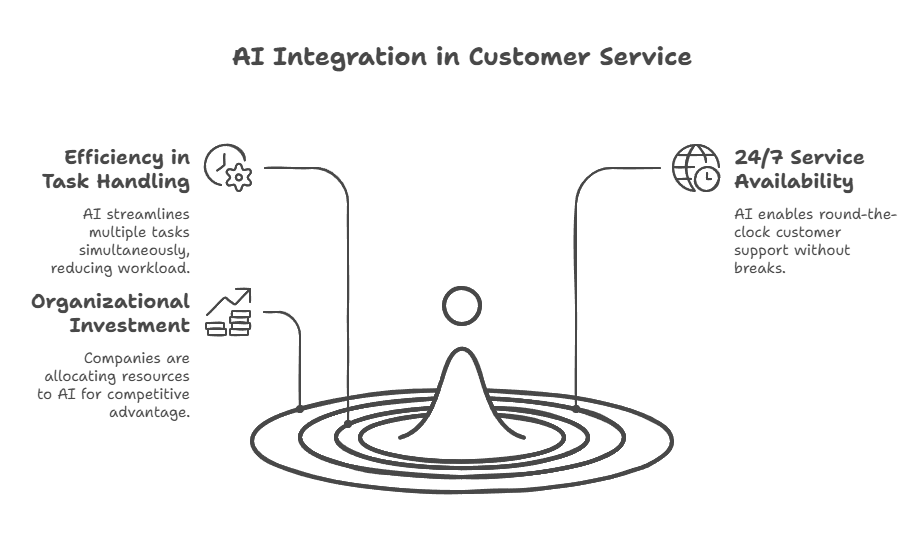Imagine calling customer support and being greeted by an AI helpdesk that instantly understands your issue, provides accurate solutions, and resolves your problem efficiently—all without waiting on hold. As AI technology advances, this scenario is becoming a reality, and many consumers are embracing the change. For instance:
- A banking customer calls to report a lost card and an AI assistant immediately verifies their identity and instantly freezes the card, preventing fraud.
- A software user experiencing login issues is guided through an automatic password reset process by an AI chatbot, resolving their problem within minutes.
- A traveler needing urgent flight changes interacts with an AI-powered virtual assistant that quickly finds and books alternative flights without human intervention.

The Shift Toward AI Helpdesks in Customer Support
Businesses are increasingly integrating AI helpdesks into their customer service operations. A survey revealed that 43% of organizations are investing in AI for customer support, recognizing its efficiency in handling multiple tasks and offering 24/7 service.

Consumer Preferences: AI Helpdesk vs. Human Interaction
Consumer preferences regarding AI helpdesks and human interaction in customer service are diverse. While 75% of consumers prefer speaking with human representatives, especially for complex issues, many appreciate AI’s efficiency for simpler tasks. Additionally, younger generations, such as Gen Z and Millennials, are more receptive to AI-driven interactions, with 61% of Gen Zers expressing comfort in discussing health concerns with AI.

The Advantages of AI-Powered Support
- Efficiency: AI helpdesks can handle a large volume of interactions simultaneously, reducing wait times and providing quick responses.
- 24/7 Availability: Unlike human agents, AI systems can operate around the clock, offering assistance whenever needed.
- Consistency: AI provides uniform responses, ensuring that customers receive consistent information.
Balancing AI Helpdesks and Human Touch
While AI offers numerous benefits, it’s essential to balance technology with human empathy. AI excels in managing routine inquiries, but human agents are crucial for addressing complex, sensitive issues that require emotional intelligence. A blended approach leverages AI’s efficiency and human empathy to enhance customer satisfaction.
Common Concerns About AI Helpdesks in Customer Support
Despite the clear advantages, some common concerns remain about relying on AI for customer support. These concerns include:
- Lack of Empathy: Customers worry that AI may lack the human empathy needed in sensitive interactions.
- Privacy and Security: There are concerns about AI systems accessing and managing sensitive personal data.
- Accuracy and Reliability: Users fear potential inaccuracies in AI responses or misunderstandings of their requests.
How to Address AI Helpdesk Concerns
Businesses can proactively address these concerns by:
- Combining AI with Human Support: Ensuring human agents are available to handle emotionally charged or complex scenarios, while AI manages routine interactions.
- Clear Communication and Transparency: Informing customers clearly about what data AI systems use, how their privacy is protected, and how AI-generated responses are validated.
- Continuous Training and Improvement: Regularly updating and refining AI models to improve accuracy, reliability, and understanding of user intent.
Conclusion
As AI helpdesks continues to evolve, their role in customer support will expand, offering faster and more efficient service experiences. Embracing AI in customer service doesn’t mean eliminating human interaction but rather enhancing the overall support system to better serve consumers’ diverse needs.